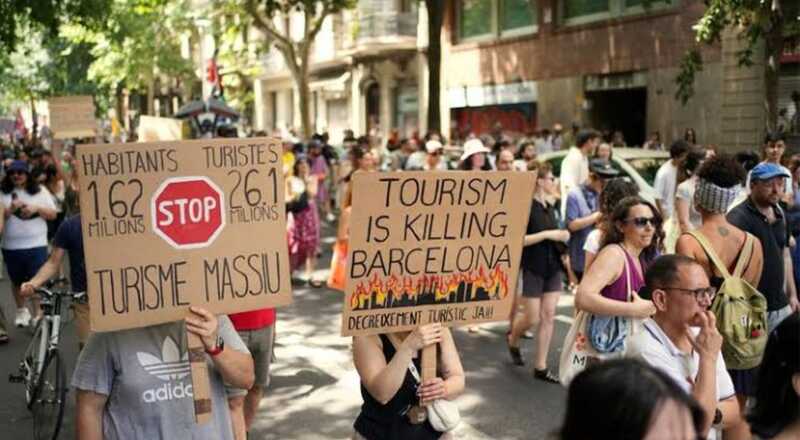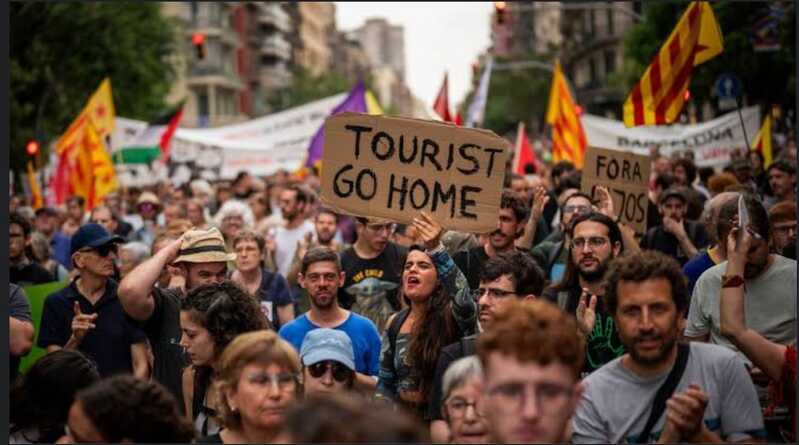Article Today, Europe:
Across Europe, local movements are gathering momentum. People are raising the slogan “Our country is for ourselves.” They argue that tourists are damaging their historic cities, cultural heritage, and way of life. What was once a source of revenue has now become a deep source of unrest. From Barcelona to Venice, residents are taking to the streets to protest against the overwhelming influx of visitors. Even museum workers, including those at the Louvre, have staged strikes. Attacks on tourists in some places reflect the mounting tensions.

Barcelona’s Lost Calm
Barcelona, which once enjoyed moments of quiet during the Covid-19 years, is today choked with tourists. For over a decade, the city has seen year-round tourist activity. Residents complain that its identity is being erased. Small shops, restaurants, and even hotels have reshaped themselves to serve foreign visitors rather than locals. Rising rents are forcing many families to vacate their homes. To add to this, the arrival of foreign workers after the pandemic has further strained the city’s cultural fabric.
Venice: A City Without Its People
The situation is even more dire in Venice. Local artist Ornello lamented that he feels like an alien in his own city. Once home to a thriving community, Venice’s local population has fallen to just 48,000. Most of them are elderly. If current trends continue, experts warn that within the next fifteen years, Venice may lose its native residents entirely. Locals believe their culture and identity are vanishing under the weight of mass tourism.
Rome, Florence, Naples Under Pressure
The debate now confronting Europe is simple yet serious: for whom is tourism meant? Experts argue that a city without its residents cannot thrive. Today, Rome, Florence, and Naples are reeling under tourist pressure. Ruben Santopietro, CEO of Visit Italy, warned that without locals, these cities risk turning into “open-air museums” rather than living, breathing communities.
A Search for Balance
Some cities are experimenting with solutions. Palma has drawn up a five-year plan with locals at its heart. Free cultural events and theatre performances are being organised to renew people’s pride and belonging. Authorities hope that such steps will restore balance between residents and visitors. The future of European tourism, they argue, depends on creating cities where both locals and visitors can coexist.



